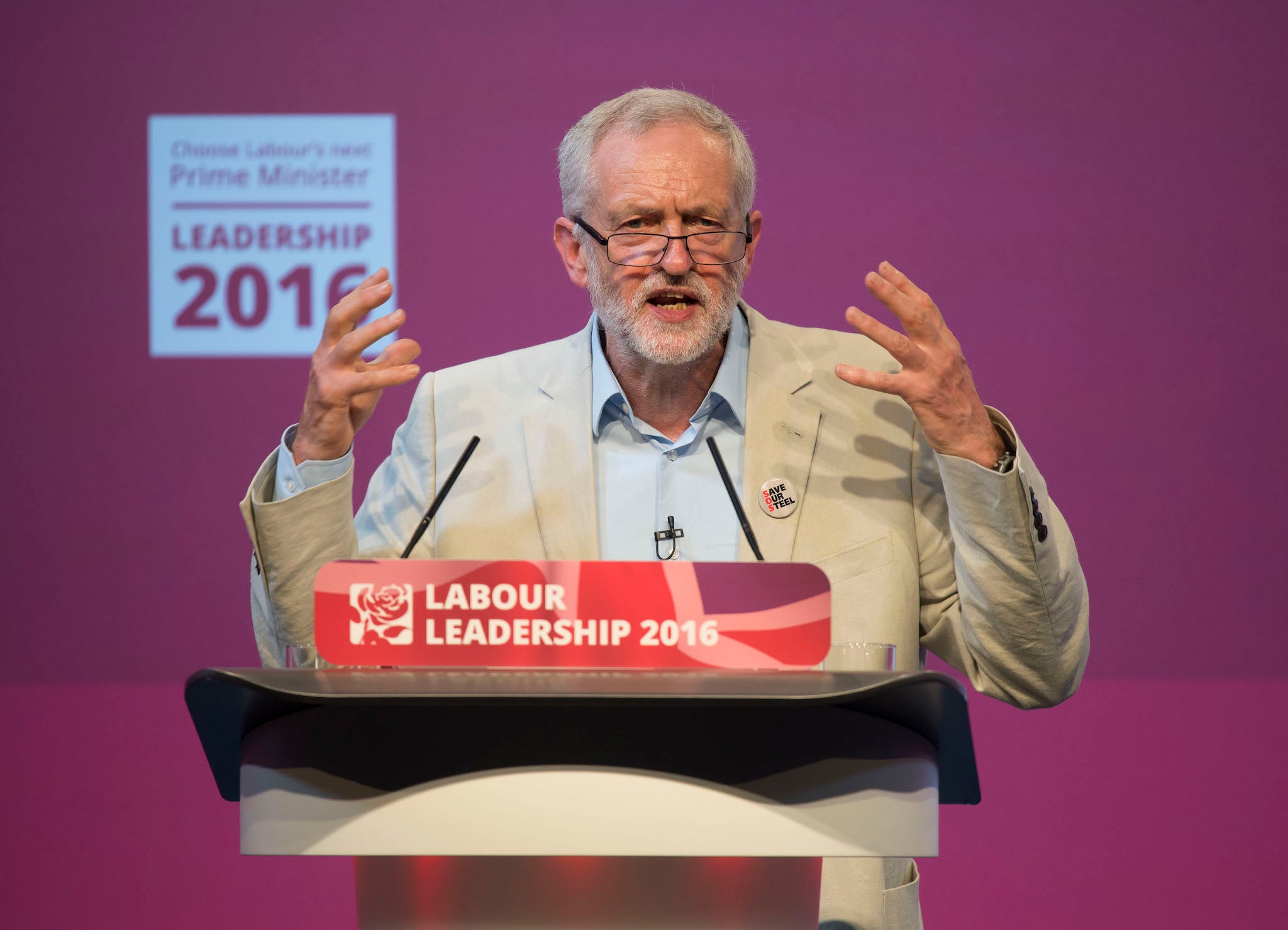A boundary review isn't unfair on Labour, but they should push for further electoral reform
Jeremy Corbyn would do well to revisit a report Blair chose to ignore

Politicians, like the rest of us, cannot be blamed for trying to protect their interests. When the already slim prospect of gaining power at the next election is to be trimmed still further by a review of parliamentary boundaries – a dry topic made lively by its impact on some well-known personalities – then those liable to lose out are liable to squeal. And there is no greater loser in this review, and no greater squealer, than the Labour Party. Indeed, its leader himself seems likely to suffer the ignominy of seeing his own seat abolished. Still, all that is happening is that an accidental and long-established bias in the system in Labour’s favour is being corrected as a result of an independent review that is trying to make each individual vote as valuable as another, within the limits of geography.
Labour is right, to be fair, in arguing that things might have been better if the review had taken account of more recent, and more accurate, electoral registers than the ones chosen, dating from last year. Still, there is always going to be some sort of cut-off, and reforms to the system of registration were needed anyway to help increase turnout. It is perfectly possible that using a later set of registers would have made little marginal difference in any case; some voters in the Tory shires will also be absent as they have been in the Labour cities.
What the Labour Party, again understandably, refuses to acknowledge is that the first-past-the post system, coupled with a preponderance of under-populated Labour constituencies in the bigger cities, has bestowed a sometimes substantial electoral advantageon it, and at the expense of the Conservatives, since the 1950s. So it is was at the last election, in which Labour, on some estimates, hung on to a couple of dozen seats more than it “should” have had, if a more equitable geographical distribution of voters had prevailed. We did not hear many Labour MPs raising the issue of that particular “unfairness” at the time. The chances are that in the 2020 election Labour will still enjoy some marginal advantage over the Tories because of the electoral system; Labour tends to do relatively better in marginal seats than the Conservatives, whose support just piles up uselessly in their safer seats (whereas the Labour vote, notoriously, tends not to turn out in socialist strongholds).
The bigger question for Labour is whether it will ever face up to the challenge of delivering real fairness in the voting system by a more thorough reform of the system. With more proportionality comes greater legitimacy, and the quirks and disgraces generated by the present system begin to disappear. Scotland is an exemplar of how a proportional system with a geographical constituency element could work in practice, though there are some who believe that the mechanics of voting on two ballot papers can be confusing to voters. Still, it is the system that has served other nations very well, led to more balanced, less extremist government and fostered social cohesion over the long run, as the German example (usually) demonstrates. Coalition politics is an art that, as the experience of 2010 to 2015 shows, the British are yet to show an enthusiasm to learn.
Thus are Labour’s self-serving arguments about the boundary review revealed to be precisely that – a jealous guarding of a long-run, albeit inadvertent, bias in the system in its favour. Labour could admit that, and also admit that the underrepresentation in the Commons of the Greens, Ukip and the Liberal Democrats is also a deeply unfair facet of the system. It could, as it occasionally has in the past, explore options for change with other parties and civic groups. In the long run, PR would offer Labour more chance of governing, although sharing power with others, but far less chance of scooping the pot every so often. They had a chance to do so when Roy Jenkins presented his report on electoral reform to the Blair government almost 20 years ago. Given the prospect of holding on to virtually absolute power with not much more than a quarter of the electorate supporting it, that Labour government, acting in pure self-interest and with tribal figures such as John Prescott, Jack Straw, Margaret Beckett and Gordon Brown, ignored it. The Jenkins Report was shelved and lies – almost – forgotten. Despite his aversion to most of the things Mr Jenkins and Mr Blair stood for, Mr Corbyn should dust it down.

Join our commenting forum
Join thought-provoking conversations, follow other Independent readers and see their replies